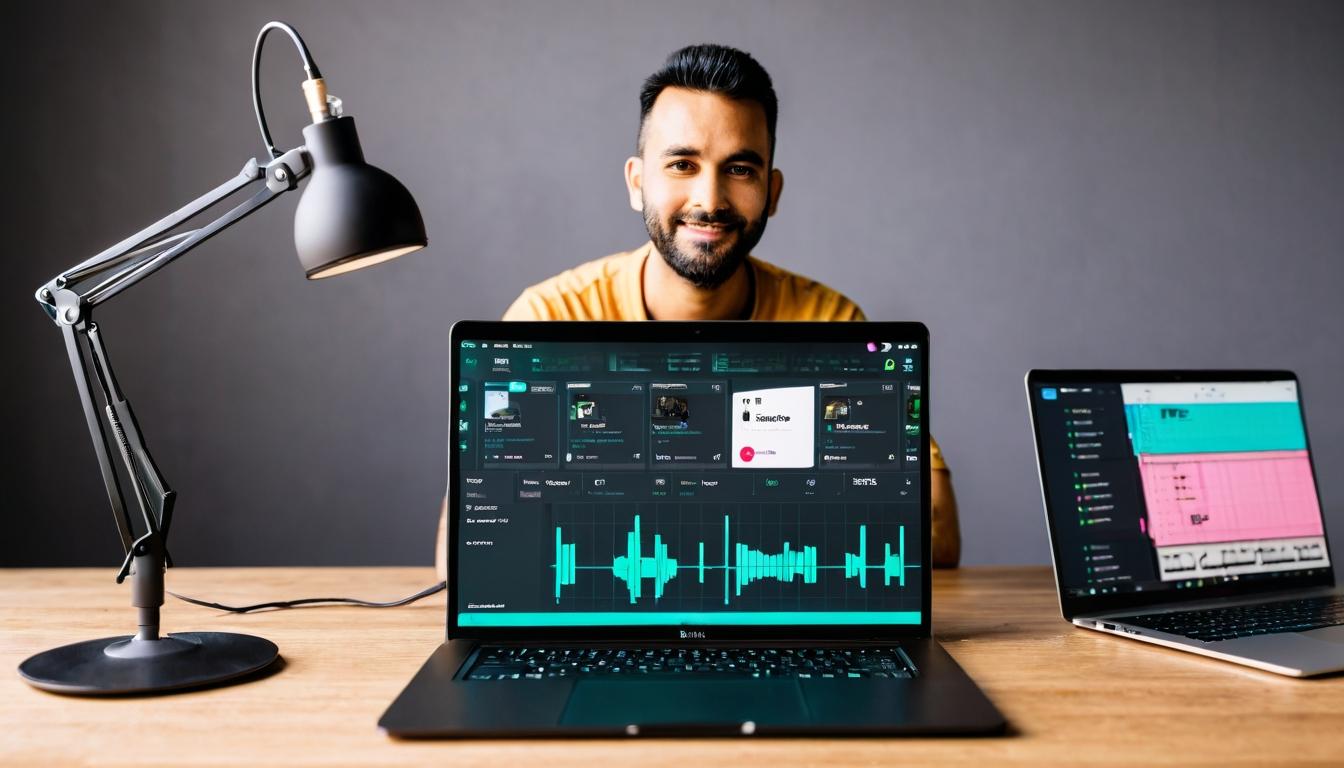In a dimly lit bedroom in suburban Detroit, a 19-year-old is crafting beats that will eventually find their way into a Grammy-nominated album. Across the ocean, a university student in Seoul samples traditional Korean instruments over drill rhythms, creating a hybrid sound that defies categorization. These aren't isolated incidents—they're part of a seismic shift in how music gets made, distributed, and consumed. The tools of creation have been democratized, and the results are both thrilling and disruptive to the established music industry order.
What began as a pandemic-era necessity has evolved into a permanent transformation of the creative landscape. Bedroom producers no longer see themselves as amateurs waiting for a break—they're building entire careers from their laptops, often bypassing traditional gatekeepers entirely. The quality gap between professional studio recordings and home productions has narrowed to near-invisibility, thanks to increasingly sophisticated yet affordable software and hardware. Artists who would have once needed thousands of dollars in studio time can now achieve comparable results with a subscription to Ableton Live and a decent pair of headphones.
The streaming platforms that initially seemed like threats to artist livelihoods have become unexpected allies in this revolution. Algorithms that once favored major label releases are now increasingly responsive to independent discoveries, creating pathways for bedroom producers to find audiences without traditional marketing machinery. TikTok's viral potential has turned obscure tracks into global hits overnight, while Bandcamp continues to provide a sustainable revenue model for artists operating outside the mainstream system.
This democratization comes with its own set of challenges and contradictions. The same tools that empower creators also flood the market with content, making discovery increasingly difficult despite the theoretical accessibility of distribution. The line between inspiration and appropriation grows thinner in an environment where sampling and interpolation have become standard practice. And the very independence that makes bedroom production appealing can lead to isolation and burnout when artists must handle every aspect of their careers themselves.
Genre boundaries have become almost meaningless in this new ecosystem. The most exciting music emerging from bedrooms and home studios frequently defies easy classification, blending elements from disparate traditions into something genuinely new. A single track might incorporate hyperpop vocal processing, trap rhythms, shoegaze guitars, and classical instrumentation—all processed through the distinctive sonic fingerprint of its creator. This genre-fluid approach reflects the listening habits of a generation that grew up with access to virtually all recorded music history at their fingertips.
The economic implications are equally profound. Traditional recording budgets have shrunk as artists realize they can achieve professional results without expensive studio time. Session musicians face increased competition from sample libraries and virtual instruments, while producers who once relied on studio work are adapting by offering remote mixing and mastering services to the burgeoning bedroom production community. The very definition of what constitutes a 'professional' recording continues to evolve.
Social media has become the new A&R department, with scouts monitoring platforms like SoundCloud, Instagram, and even video game streaming services for emerging talent. The discovery process has accelerated to lightning speed—an artist can go from complete obscurity to major label interest in a matter of days based on a single viral moment. This creates both incredible opportunities and significant pressure on young creators who may not be prepared for the sudden attention.
The most successful bedroom producers aren't just technically proficient—they've mastered the art of building community around their work. They share their creative process, engage directly with fans, and often provide educational content that helps others follow in their footsteps. This transparency creates loyal followings that transcend mere musical appreciation, turning listeners into active participants in the artist's journey.
As we look toward the future, it's clear that the bedroom production revolution is only beginning. Advances in artificial intelligence are creating new tools that will further lower barriers to entry, while virtual and augmented reality technologies promise new ways to experience and create music. The traditional music industry, once resistant to these changes, is now actively seeking partnerships with bedroom producers, recognizing that innovation increasingly comes from outside established systems.
What remains constant is the human element—the drive to create, to connect, to express something that can't be conveyed through words alone. The tools may change, but the fundamental impulse behind music-making endures. In bedrooms around the world, the next generation of innovators is already at work, quietly building the future of sound one track at a time.
The underground renaissance: how bedroom producers are reshaping music's future

